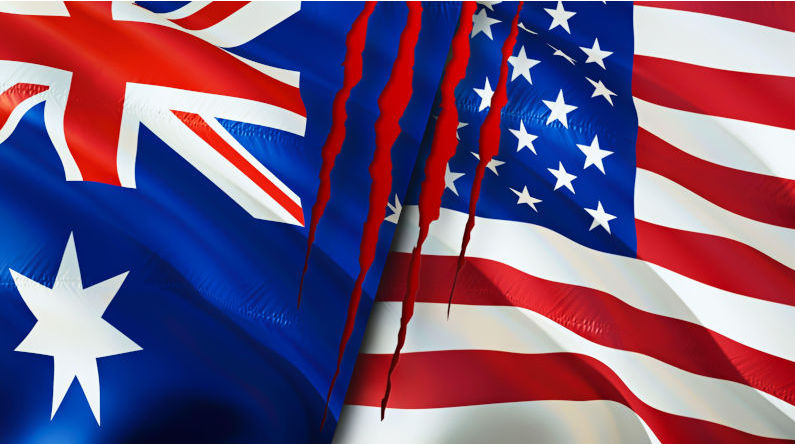The question that wasn't asked
August 22, 2025
Australian support for the US alliance is progressively evaporating. The longer Trump remains in the White House the greater the separation grows.
With its orchestrated but illegal bombing of Iran as a sovereign nation, its political, economic and military support of Israel throughout the genocide in Gaza, its steady weakening and undermining of our international institutions and its cancerous military-industrial complex that has infiltrated our political and financial systems, Australian support for the US alliance is progressively evaporating. The longer Trump remains in the White House the greater the separation grows.
Polls are consistently showing that fewer Australians have any faith the US will act responsibly in the world, that the US can’t be trusted as a security ally and that they want Australia to develop a more independent defence capacity. They want Australia to be less close to the US: they are not at all confident Trump would defend Australia’s interests if threatened and see Trump as the greatest threat to world peace.
When Prime Minister Anthony Albanese and Foreign Minister Penny Wong finally fronted the press gallery in Canberra in relation to the illegal bombing of Iran by our AUKUS partner, the US, they were anticipating a very important question being asked about this, one that never came. See full press conference here.
With brand “US” on artificial life-support in this country and around the world, the government “Talking Points” prepared for this press conference tellingly anticipated this question:
“How can Australia continue to partner with the US?”
The suggested response:
“Australia and the United States have a long-standing alliance bound by a history of bipartisan co-operation. Our partnership has delivered mutual benefit for over 70 years and will continue to do so.”
The inclusion of this anticipated question bespeaks knowledge within the Canberra bubble of widespread and increasing public dissatisfaction with our continuing slavish fixture to the coattails of the US, and internal perception that the rogue behaviour of both the country and its president will increase that dissatisfaction.
In the geopolitical maelstrom and moral vacuum created by the US and its renegade proxy Israel, the suggested answer implies that the Australian Government seems to think they can just wait it out, try to steer some kind of moderate middle course and that a version of the old normality will be restored at the end of Trump’s reign in 2028.
That’s why our government addresses legitimate concerns about the reliability of the United States under a Trump presidency with lines like, “The US-Australia alliance is far bigger than any PM or any president”. Or perhaps they’re quietly relying on the power of the neocons and the sprawling military-industrial complex, unfortunately now here as well as in the US, to sustain the hapless conventional approach of both countries.
This approach ignores the fact that the Trump organisation is selling Trump 2028 caps and that serious consideration is being given to challenging the US Constitution so Trump can stay in power through succession rather than election.
More importantly, it fails to take account of the profound restructuring of the geopolitical and economic international orders that is occurring now at an unprecedented pace.
It is time for the Australian Government to read the tea leaves and develop a much more sophisticated and independent foreign policy that reflects who we are and what we perceive to be our place in the world. We need a foreign policy that respects the sovereignty of all nations and their peoples’ right to self-determination, that is consistent with international law and morality, and that strengthens international institutions to support universal compliance with international law.
The views expressed in this article may or may not reflect those of Pearls and Irritations.

